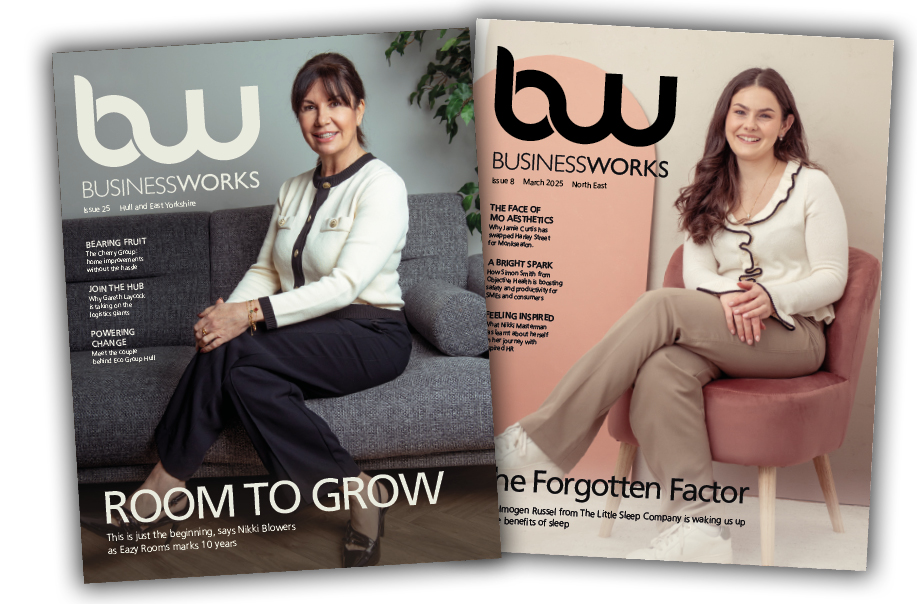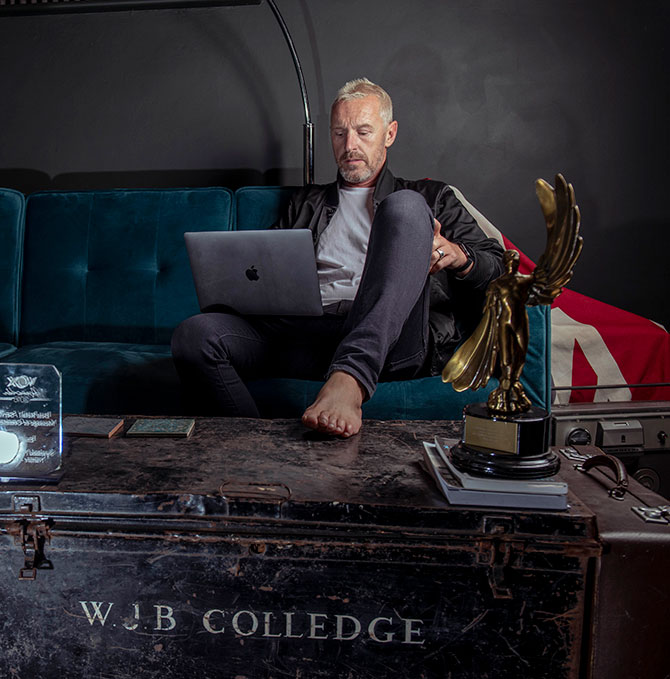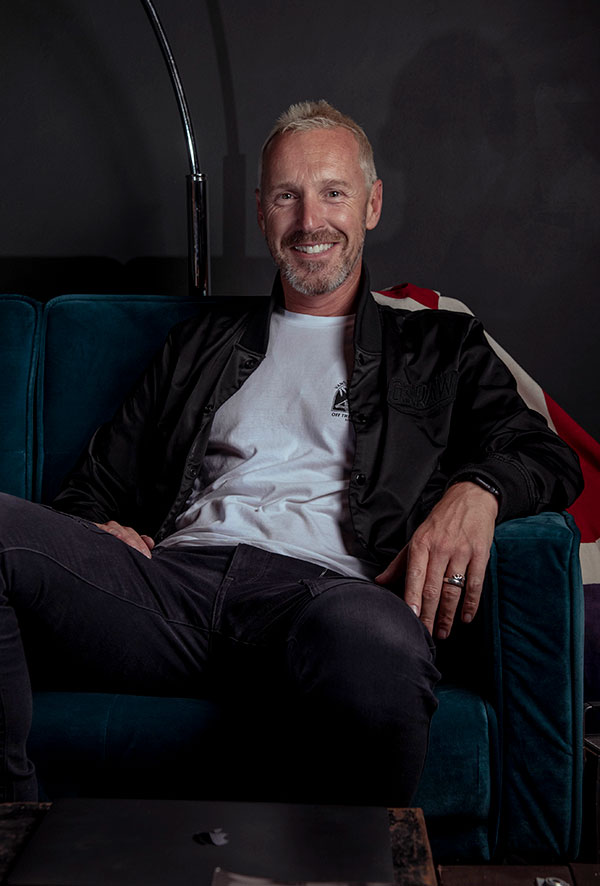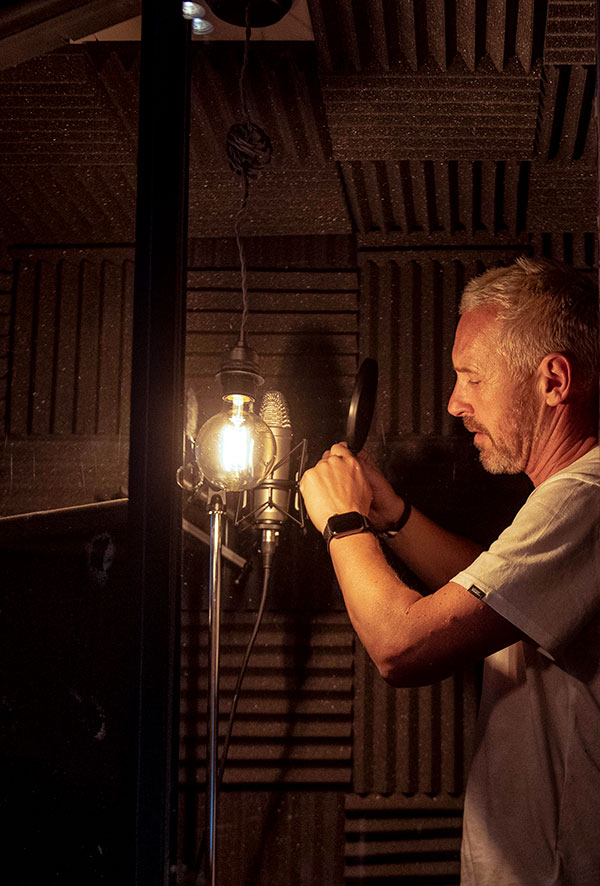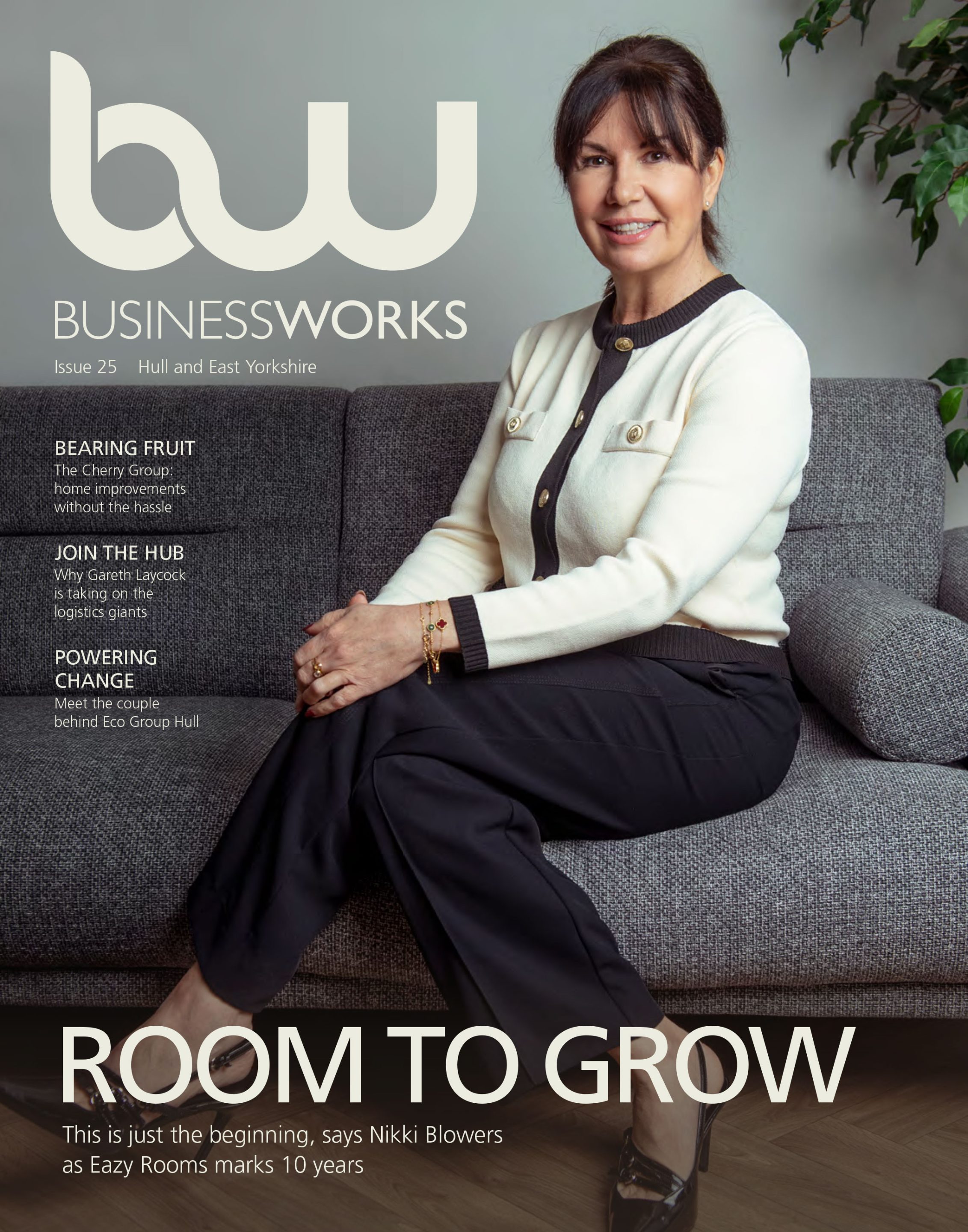Howard Young started his audio production career in the USA – now he’s hitting the heights of Hollywood from his boutique studio near Hull. By Sam Hawcroft.
Like many young people who aspired to a specialism in the creative arts a few decades ago, Howard Young was told to get a proper job when he left school in 1989 – so he became a joiner.
But it wouldn’t be long before his entrepreneurial streak shone through. A few years later, when the housing market crashed, he found himself out of work – so he set up his own photo printing company, called Memories, hired the necessary hardware, and based himself in the foyer of a local supermarket.
This was the mid-1990s, when digital photography was in its infancy, and before many people had decent home computers. And Howard’s venture took off.
“People used to bring holiday pictures, or their old sepia photos,” he says. “I could improve them, enlarge and frame them, or print them on T-shirts while they went shopping.”
This went well for a few years, until he gained a green card and decided to head to the USA.
He did what he calls a few “fun jobs” in Florida – casually mentioning that he ran a speedboat rental company in Palm Beach and “delivered Corvettes for a while”. However, he was still unsure of the “bigger picture” – until a friend, who had just started lecturing at Full Sail University in Orlando, invited him to have a look around.
Full Sail is a private university that offers world-renowned courses in entertainment, media, arts and technology. “It taught all aspects of CGI animation, game design, film-making, audio and live audio,” says Howard. “So I ended up going there and doing a degree in sound.”
To make ends meet, he took out a small loan, got a bit of help from his father, worked within the university’s phone student recruitment team for extra money, and waited tables in restaurants. “You could earn good money in tips over there, and serving customers in a restaurant environment greatly improved my interpersonal skills, as you deal with such a wide variety of people,” he adds.
After he graduated in 2000, he struggled to make any headway with the university’s work placement department, so he took it upon himself to ring around some local companies.
“Literally on the second phone call,” he says, “I just got put straight through to this place in the back lot of Universal Studios. I got talking to a guy called Bob Bass, who was the lead dubbing mixer, just living the dream job that I wanted to do. He loved the fact I was English and we just hit it off on the phone. He said I could come in for the week and be a runner. The day I arrived, they asked me if I could start on 25 casual hours a week (unpaid), so I asked if I could do 40 hours. I think this helped convey my commitment and enthusiasm to the company.”
After a couple of months, this turned into a paid job – and then a baptism of fire for Howard. When Bob decided to move back to Boston, it left the studio needing a lead engineer on a TV show called Ship-Shape. “It was like those DIY shows we have over here, but for people with boats. They told me I had the studio for three days, and if I could mix the first episode in that time, then I had a job!”
You could say it was a case of sink or swim…
“I spent the first two days absolutely crapping myself and trying to work the studio out! Then on the third day I managed to pull it all together and it all just worked. In some ways I wish that I’d worked alongside Bob for a few months to learn skills from him. Since then, in my whole audio career, I’ve never really worked alongside anyone. I’ve been very isolated. It was great to have that opportunity, but at the same time, it was a bit scary because I was literally straight out of university. I managed to sort of suss it out and then slowly improve.”
Howard had only intended on staying in Florida about four years, but ended up being there for seven. Then 9/11 happened, and for one reason or another work began to quieten off; Universal had decided to build another facility, which took a lot of business away from Howard’s studio, and a long-term relationship with a local girl had just come to an end, so he felt he was ready to come back to England.
The best move, career-wise, would have been to head to Soho, where all the top audio facilities were, but Howard wanted to be closer to his dad, his stepmum, and the rest of his friends and family in Hull – so the solution was to work in local radio. “I could still work in a studio, but be nearer to the people I wanted to be around, so it was a good middle ground,” he says.
He worked as a commercial producer at Viking FM for a few years, but was made redundant after the station was bought out by Bauer. Then he was offered the job of creative manager at the brand-new KCFM station in Hedon Road. “That was a big step up for me, because I was in charge of hiring all the creative writers, as well as the producing.”
However, things changed when the station was bought out too, by the Lincs FM Group, about four years later.
“I’d been on quite a good salary because it was an independent setup, and we were doing really good things, but they had to get rid of me eventually because they just didn’t really have engineers on that kind of money. So I lost my job again.”
This turned out to be a blessing, and the catalyst for Howard going it alone once more.
“My eldest boy had just been born, and I’d wanted to set up on my own, but I didn’t really want to take the risk. But the timing was really good. It unchained me to just go ahead and take that risk, and truly go for it.”
He set up in his garage as a sole trader – and one of his first clients was the property expert and broadcaster Sarah Beeny, whom he’d worked with and got to know well during his time in radio.
At the time, Sarah was renovating Rise Hall, which was documented in Beeny’s Restoration Nightmare on Channel 4. Howard offered her his audio recording services, and it ended up being a perfect arrangement as it saved her having to go to London.
More than a decade on, he is now the director of his own limited company, Engine7 Audio, and continues to work with high-profile actors who are often based in our area, including Vincent Regan and Adrian Rawlings. “They can cut out a lot of travel by coming to me because I connect up to the studios. I’ve had a lot of clients that I’d met through working at the stations over the years, when I was making my own radio adverts and sound design for animations.”
He gradually invested in his own equipment and rented a studio in Willerby for a few years, before a property in Ferriby came on the market. The old pumping station, with its thick concrete roof, proved to be the perfect new base. “It’s literally just a big square room with a kitchen and a bathroom, and I’ve sound-treated it and built a voiceover booth. It’s a detached commercial studio now, which is a great step up, and it’s nice for clients to come to as it’s quirky and interesting.”
Howard has carved out his own niche as, while there are numerous sound engineers producing local musical artists, Engine7’s audio post-production services encompass bespoke sound design and voiceover services for film and TV, radio, animation, apps and websites, as well as local and national radio ads, audiobook production, and even on-hold message systems for businesses. And with Engine7, you don’t just get a crackly version of Vivaldi’s Four Seasons.
“I won a national award for the work I did with Swanland Primary School, where we rewrote their mission statements as though they had been written by children, and then we recorded them. So when the parents ring the school and are put on hold, they hear the children in their little cute voices reading the school’s mission statements.”
Speaking of accolades, over the past two decades, Howard has won eight VOX awards for outstanding creative production in radio and a coveted London International Award for production.
And in June, he hit the heights of Hollywood, in what he says was “the biggest thing I’ve ever done” – even though it only took about an hour, in essence.
For the forthcoming Hollywood live-action version of Pinocchio, directed by Robert Zemeckis (of Back to the Future trilogy fame, as well as Forrest Gump, Cast Away and many more), Howard was taken on to do some ADR (automated dialogue replacement) work with its gifted young star, Benjamin Evan Ainsworth who Howard had developed a working relationship with over past months.
“I was directly on the line to Skywalker Sound (the legendary Lucasfilm guys who developed all the sound for Star Wars and the like) in California on videolink and live recording, recording, editing and hand-syncing Benjamin’s voice takes on the fly, with Robert Zemeckis looking at me on the camera. I’d been told that he was a great guy, but quite challenging to work with. But the session went really well – it couldn’t have gone better.”
Howard has even ended up with a credit on the film, released on Disney+ on September 8. “I couldn’t believe it because I’ve worked on loads of TV stuff and they never, ever ask your details to put on the credits because you’re a third party. But this was the best credit I could ever have had, and they were forthcoming with it.”
He acknowledges that a bit of “luck and convenience” was involved, with Benjamin being living a few miles away in South Cave. “He didn’t want to disturb his education, so he could come and do his recording after school. And for anyone who lives in the geographical area, I can solve their problem of travelling.”
Now Howard’s had a taste of Hollywood, he says he’d love to do more. “Radio work is enjoyable, it’s my bread and butter, but the TV and film stuff is quite high pressure, it pushes me technically. There’s a lot more to it, stress-wise, but it’s a lot more rewarding at the same time. So if you put yourself under pressure, you get the rewards – as my Dad taught me – the more you put into life the more you get out of it.”
But he’s more than happy where he is, married with two sons and a “pretty good” work-life balance. “I wouldn’t really want the London lifestyle now,” he adds, “especially with two amazing and fun little boys to create adventures for.”
If there’s anything he’d change in the future, he would try to take a bit more time out to work on his business, as opposed to in it – a familiar theme to anyone who’s been on a For Entrepreneurs Only course. Does he ever do any networking or business events? “No, I’m a bugger for it, but I’m looking to improve on that,” he laughs!
Some months back he did take on a work experience student, Harry McCann, who became a paid apprentice before going on to study for a degree in London with a view to working in film. “Nurturing him and watching him progress has been really rewarding,” says Howard. “I can’t really justify taking somebody on full-time at the minute, but I think I might look at finding another work experience. And the mentoring side, I’d like to look at that, and maybe offer some training, as it’ll freshen things up a bit.”
But as the old saying goes, if it ain’t broke, don’t fix it, and Howard’s future certainly looks… sound.


